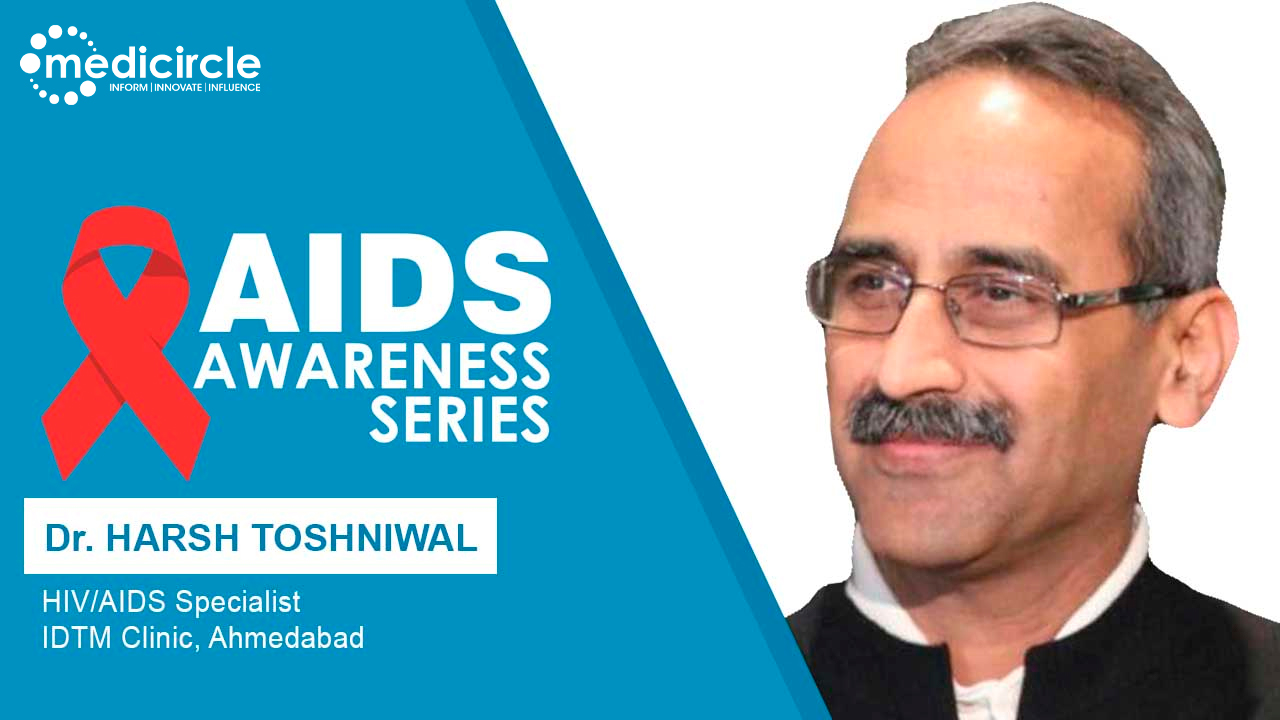Dr. Harsh Toshniwal is a well-reputed HIV specialist currently practicing in the IDTM clinic, Ahmedabad. He has completed MBBS and MD. He has expertise in Infectious Diseases. The IDTM clinic is known for housing experienced Internal Medicine Specialists.
High-risk groups for HIV
Dr. Harsh says, “There is no particular age at which you should have your HIV AIDS test, you have to do this on indication basis. We can do molecular testing for HIV of even 3-4 days old babies (babies of HIV positive mothers) to know their status of HIV. For the general public, this test is not recommended. HIV tests should be conducted specifically on a high-risk group or people indulge in high-risk activities.”
Dr. Harsh listed the groups who are at higher risk for HIV
High-risk group
Those people who have undergone multiple blood transfusions.
Those living in African countries are at high risk for HIV AIDS.
Long route truck drivers
Those who have multiple sexual partners
Those who have unprotected sex with any stranger
Single migrant workers
Indicator illnesses for HIV – Long-standing fever, TB, diarrhea, vomiting, skin disease, fungal infection, weight loss.
HIV – Then and Now
Dr. Harsh expresses, "HIV has transformed a lot over the years. From 1981-to 1995, it was a dreadful disease. We were not having any medicines for HIV at that time. Society was not sort of welcoming HIV-positive patients. There was marginalization, discrimination, and abnormal behavior towards them. But the present scenario is completely different from this. Now, they are very well accepted in society. But one thing is there, after knowing the positive result, the immediate reaction is denial. At this point, we need to counsel them. There should be a positive role of doctors, paramedics staff, society, peer groups, govt agencies. All of them should make the patient understand that now HIV is a chronic manageable disease just like your diabetes, hypertension, thyroid. The patient should take regular medicine and live a normal life. Therefore, stigma and discrimination are not to be corrected by the patient, it has to be accepted by us (the society). HIV doesn't get transmitted by hugging, shaking hands, or eating together.
NACO – National AIDS Control Organization. It is there in every district of state and supplies the free drug to all HIV patients. Even the government has done appreciable work on this issue.
As socially responsible people, we must talk openly about HIV and help normalize the subject.
IEC – Information, Education, and Communication. It has been very nicely delivered at the grass-root level and a lot of people have benefited.”
HIV affects mental health
Dr. Harsh describes, “Patients usually get anxious, depressed and helpless after being found HIV positive. At this point, counseling is very much required and effective also. We explain to them that HIV has transformed from a dreadful disease to long term manageable illness like thyroid, hypertension, diabetes. All you have to do is to take medicines regularly without fail.
HIV also causes neurological symptoms. HIV kills defense cells of the body and makes the body susceptible to other common infections like TB, fungal infections, brain encephalopathy. We can minimize these infections by taking regular medicines and keeping the viral load suppressed.
There can be some side effects of HIV drugs (effects on mental health). In this case, we can change the drug.”
Healthy lifestyle for HIV positive patients
Dr. Harsh emphasizes, “HIV positive patients can lead a normal life like diabetic, blood pressure patient is living. Here are some dos and don't which are to be followed
Dos and don'ts
1. You always have to have protected sex.
2. Healthy diet – homemade food is best; fruits and vegetables are a must.
3. Avoid junk foods
4. Regular yoga, meditation, and exercises are helpful
5. Take HIV drugs daily, never miss it.
Dr. Harsh concludes, "I always encourage them to live a healthy and happy life. I would like to wish the HIV population, All the best.”
(Edited by Renu Gupta)

 HIV can affect anyone. However, certain high-risk groups are at higher risk of contracting HIV infection. Let's get deeper and more reliable information on this from well-reputed HIV Specialist, Dr. Harsh Toshniwal.
HIV can affect anyone. However, certain high-risk groups are at higher risk of contracting HIV infection. Let's get deeper and more reliable information on this from well-reputed HIV Specialist, Dr. Harsh Toshniwal.










.jpeg)

.jpg)


















.jpg)